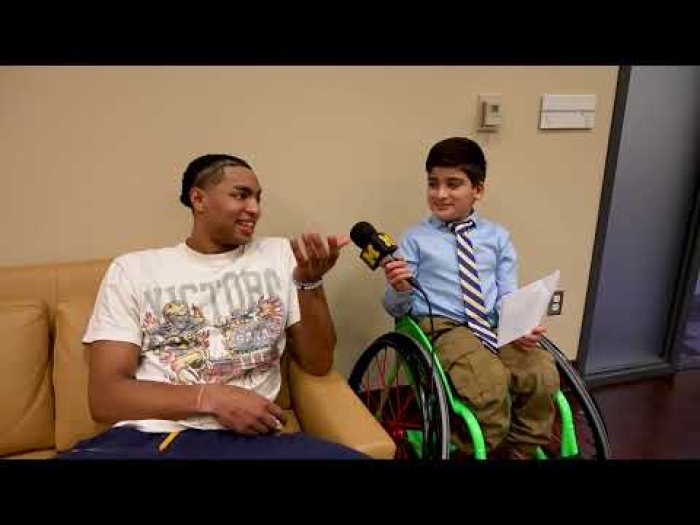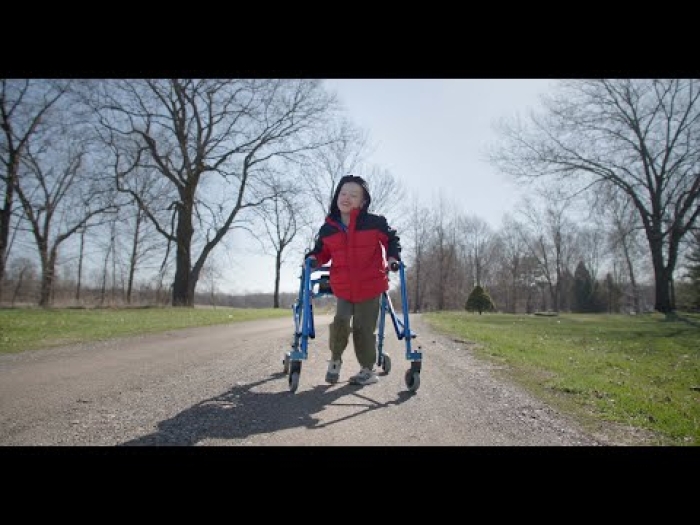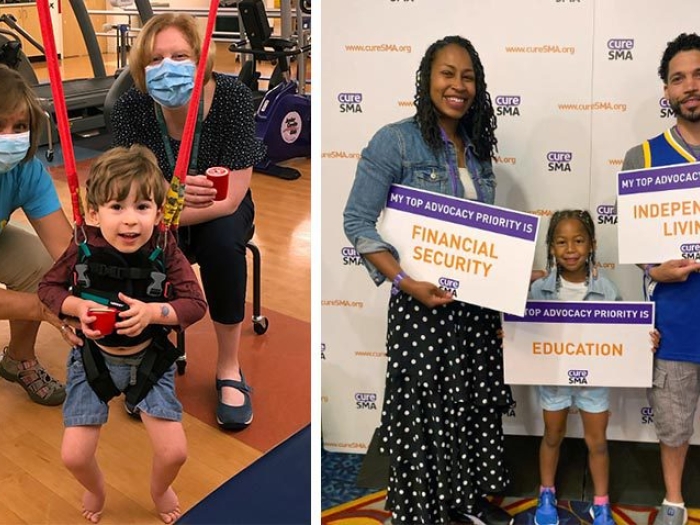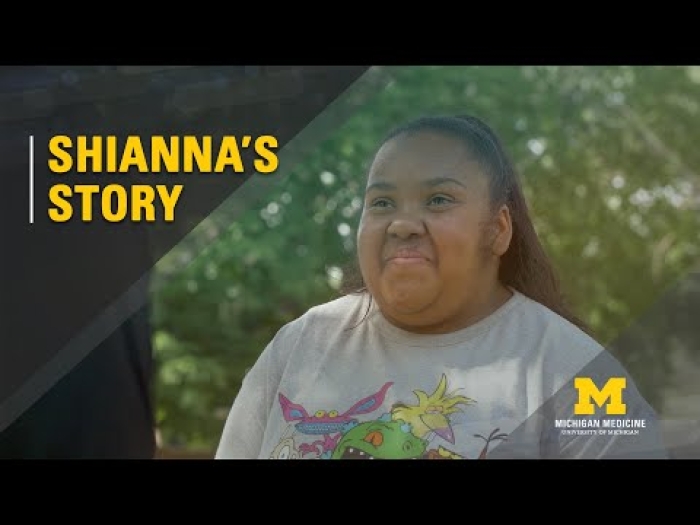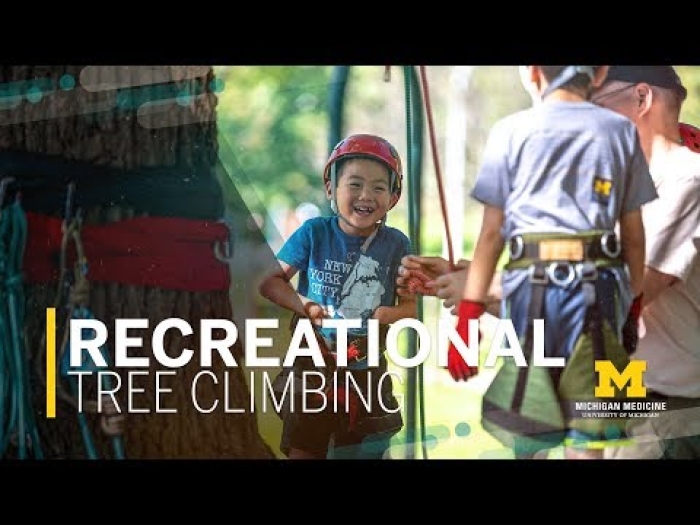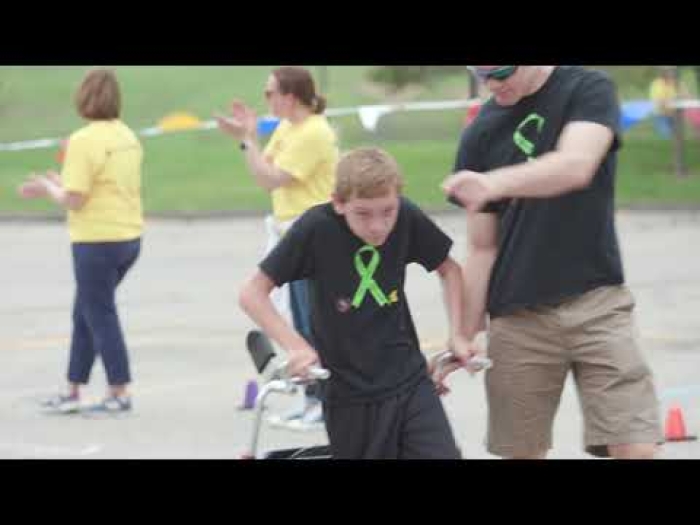A new program provides recreational outings for children with special needs, including cerebral palsy, paralysis and Down syndrome.
7:00 AM
Author |
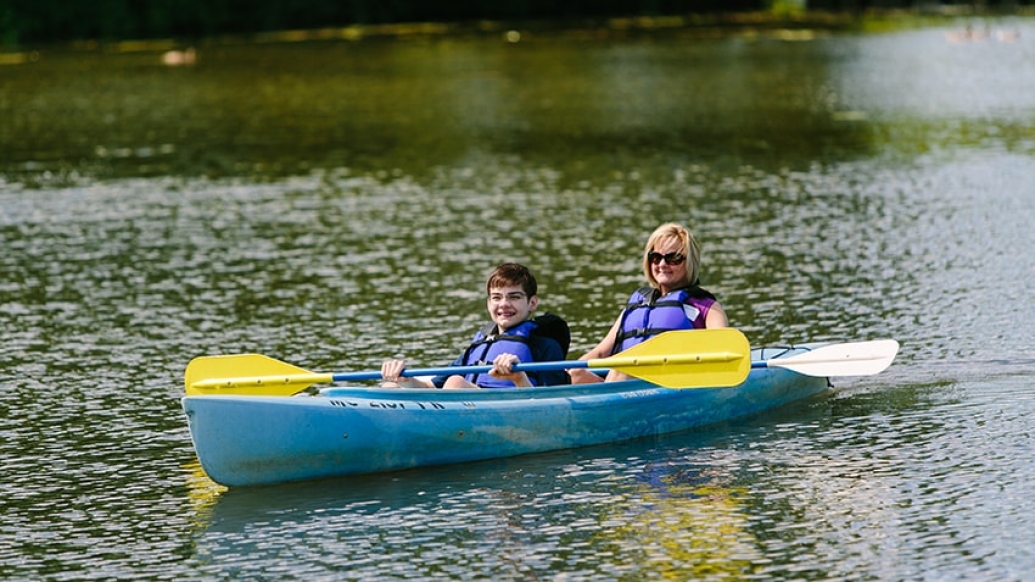
Born with quadriplegia cerebral palsy, Zander Bowles does many activities with the help of a power chair.
MORE FROM MICHIGAN: Sign up for our weekly newsletter
But on a recent summer day, the 14-year-old was enjoying the Huron River in a much different type of seat: on a kayak.
The Ann Arbor eighth-grader was among more than a dozen kids who spent the morning on the open water kayaking at Gallup Park. The event was the first of a series of clinics intended to offer recreational opportunities for children with special needs, including cerebral palsy, paralysis, Down syndrome and autism. Families were paired with volunteers and shown how to still-water kayak together using adaptive equipment.
The event, organized by physical medicine and rehabilitation therapists at University of Michigan C.S. Mott Children's Hospital, was supported by a $15,000 grant from Epic and the Mott Family Network through the Mott Golf Classic. The grant will also fund adaptive camping and skiing clinics this year.
"It gives kids an opportunity to find themselves in a situation where they are in control. It gives them a sense of independence. It's incredibly freeing to be out on the open water," says Becky McVey, a recreational therapist at Mott and one of the organizers.
"In the clinical setting, we are working on specific goals that tend to be focused on their physical limitations. It was so great to see these kids out in a kayak, being successful and problem solving on their own or with little support purely for a fun and recreational experience.
"We hope these clinics help turn attention to what kids can do instead of what they can't do and helps families enjoy activities they may not have thought possible before."
Participants were also able to fish, draw and use a headset to virtually experience kayaking while waiting their turn. Mott also hosts a variety of other adaptive events through the year, including martial arts, bowling and tree climbing.
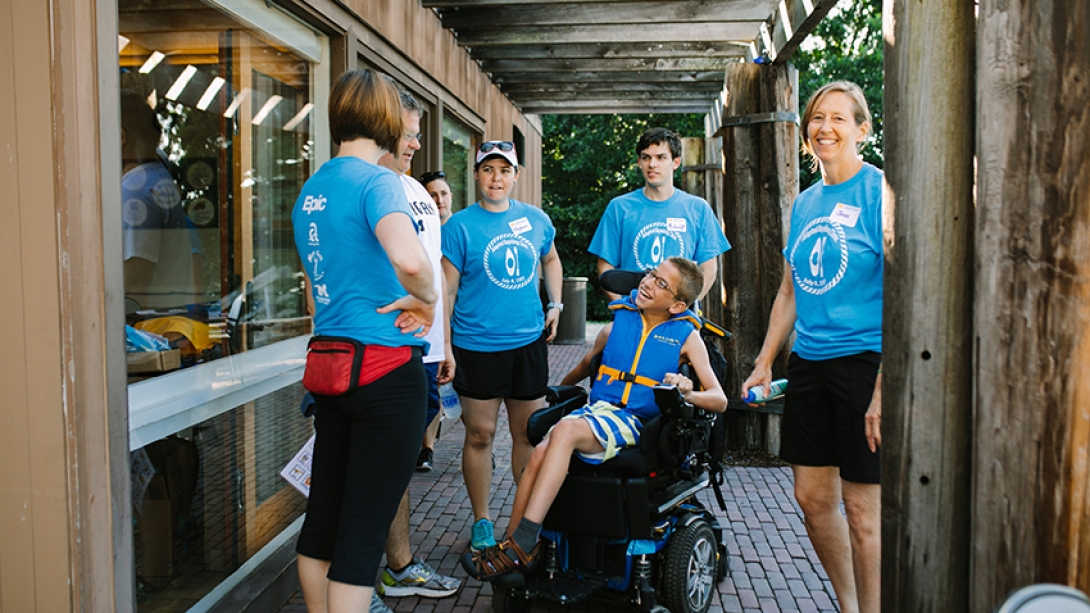
Finding family activities
Zander's mom, Lori Skibbe, says her son was not initially enthused because of unsuccessful past attempts at kayaking. It took the bribe of a bacon cheeseburger to get the teen to try it with her riding tandem.
SEE ALSO: U-M Program Helps Young Adults with Disabilities Get Ready for Workforce
"When we got there, he was not happy. I told him, 'Just do me this favor and try,'" Skibbe says.
"Everything changed once he was out on the water. He said he wished he could have been out for longer and definitely wants to do it again. I think it's the first time he's ever been comfortable in a small watercraft like that. He was surprised at how comfortable he was."
Skibbe, who has three other children, says events like this not only benefit the child with a disability but also the whole family, who can explore new activities together. Zander's 10-year-old sister, Elena, kayaked alongside her brother.
"We like to do things as a family. My husband and I don't want to leave a family member behind while the rest of us go off and do something fun," she says.
"Some children and teens have never experienced recreational activities the rest of us take for granted, and this opens the doors for them to try something new," Skibbe adds. "I'm hoping this gives Zander an appreciation for the outdoors and the importance of exercise and movement."
Organizer and Mott rehabilitation engineer Jamie Mayo says therapists plan to offer more kayaking events. Depending on additional funding, they hope to expand services to provide adaptive equipment rentals as well.
"We hope this empowers families to see that with the right equipment, there are many things they can safely enjoy with their children," Mayo says. "Kids have an opportunity to take an active role in what they're doing and gain confidence that will hopefully carry over to other areas of their lives."
In Ann Arbor and interested in future adaptive events? Email Becky McVey at [email protected].

Explore a variety of healthcare news & stories by visiting the Health Lab home page for more articles.

Department of Communication at Michigan Medicine
Want top health & research news weekly? Sign up for Health Lab’s newsletters today!
